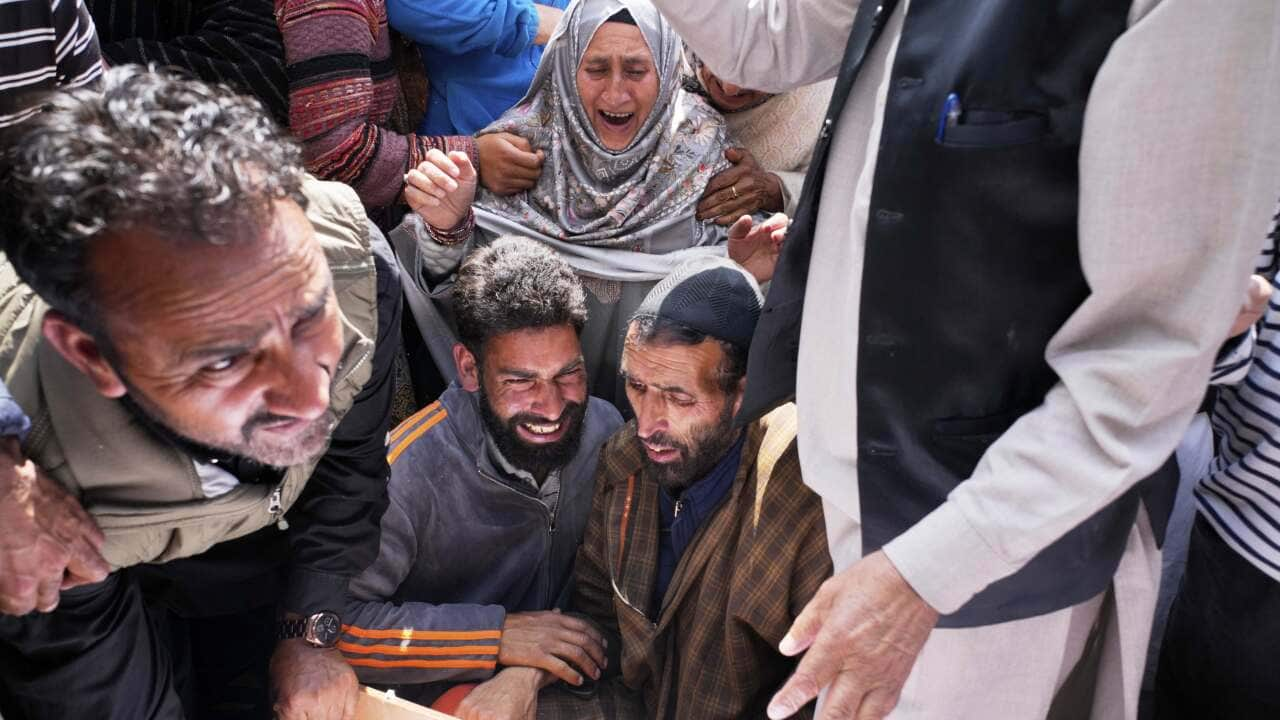India's navy has conducted "long-range, precision offensive" missile tests on Sunday as its Prime Minister Narendra Modi promised a "harsh response" to an attack last week that killed 26 people.
The suspected militant attack in Pahalgam, a popular tourist destination in Indian-administered Kashmir, is the deadliest assault on civilians in the disputed region in years.
Indian and Pakistani troops also exchanged fire over the weekend for the third consecutive day along the line of control dividing Kashmir.
Modi has placed the blame for the 22 April attack on Pakistan, but has not disclosed any evidence of Pakistani involvement.
The Pakistani prime minister's office has claimed it has "no connection to the recent terrorist attack".
Escalating tensions
India has since announced several measures to reduce its ties with Pakistan, including suspending a water access treaty and closing its only operational land border crossing.
Local media reports Indian forces have detained or questioned up to 1,500 young men in Kashmir suspected of being linked to terrorism.
Pakistan has retaliated by expelling Indian diplomats, cancelling several types of visas for Indian nationals, and closing its airspace for Indian airlines.
Pakistan's railway minister, Hanif Abbasi, gave a warning over the weekend, saying the country's nuclear weapons were aimed "only for India … these ballistic missiles, all of them are targeted at you".
Both Pakistan and India possess nuclear weapons, prompting the United Nations to urge the countries to demonstrate "maximum restraint".
Kashmir has been a flashpoint of conflict, dating back to 1947, when the region was partitioned into Muslim-majority Pakistan and Hindu-majority India.
Conflict in Kashmir
The two countries went to war in October 1947 over control of Kashmir, a Muslim-majority region ruled by a Hindu monarch Hari Singh.
When the first war ended in 1948, both newly independent nations held portions of the region.
India and Pakistan went on to fight two additional wars over Kashmir in 1965 and again in 1999.
Tensions rose in 2019 after an attack claimed by the Pakistan-based group Jaish-e-Muhammad killed 40 Indian soldiers, bringing the neighbours to the brink of war.
The crisis was defused through international mediation.
What happens next?
Pakistan's Prime Minister Shehbaz Sharif has shown support for an independent investigation into the Pahalgam attack.
In a statement, his office said "his country seeks peace in the region" and also welcomes an offer from Iran to help de-escalate India-Pakistan tensions.
Sharif has said Iran is willing to participate in an investigation into the terror attack.
— With additional reporting by Reuters




